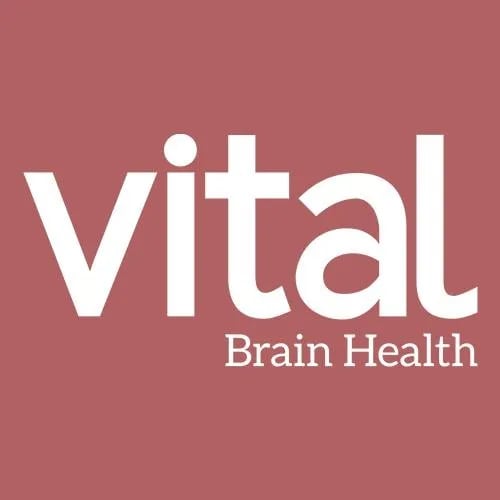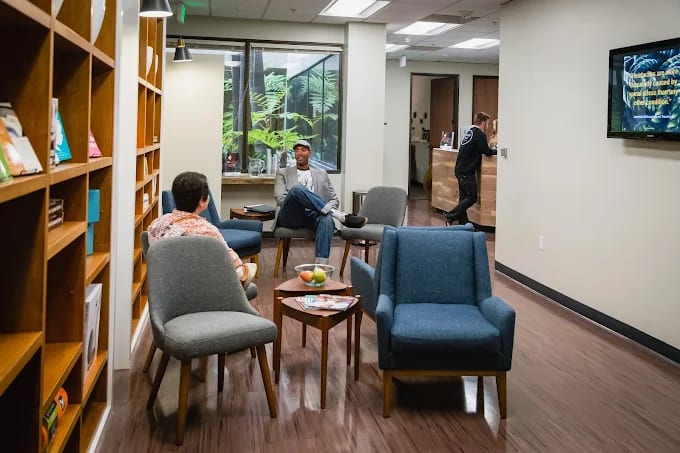Benefits of Brain Training
In todays fast-paced world, mental agility is as crucial as physical fitness. Pasadena Brain Training services . The concept of brain training has gained momentum, with many seeking ways to enhance cognitive function, improve memory, and boost overall mental health. The benefits of brain training are manifold and can be incredibly impactful for individuals of all ages.
One of the primary benefits of brain training is the enhancement of cognitive abilities. Just like physical exercises strengthen the body, mental exercises can sharpen the mind. Regular brain training activities, such as puzzles, memory games, and problem-solving tasks, can improve memory retention, increase focus, and enhance problem-solving skills. These exercises stimulate the brain, encouraging the growth of new neural connections, which can lead to improved cognitive function.
Moreover, brain training can play a significant role in mental health. Engaging in activities that challenge the brain can reduce stress and anxiety, providing a sense of achievement and boosting self-esteem. It promotes mindfulness and concentration, which are essential for managing daily stressors. For older adults, brain training can be particularly beneficial in maintaining mental sharpness and delaying the onset of age-related cognitive decline. Studies have shown that regular mental exercises can help preserve memory and even improve it in some cases.
Another compelling benefit of brain training is its potential impact on overall quality of life. By incorporating brain training into ones routine, individuals may find themselves more adept at handling complex tasks, making decisions, and adapting to new situations. This can lead to increased productivity in both personal and professional spheres. Furthermore, the sense of accomplishment from mastering new skills or improving mental acuity can enhance self-confidence and foster a positive outlook on life.
For those seeking brain training opportunities nearby, many local community centers, educational institutions, and wellness facilities offer programs tailored to different age groups and skill levels. These programs often combine fun and educational activities designed to challenge the brain while providing a social setting that encourages interaction and collaboration.
In conclusion, brain training offers numerous benefits that contribute to mental sharpness, improved cognitive function, and overall well-being. By engaging in regular mental exercises, individuals can enhance their memory, reduce stress, and improve their quality of life. With the availability of brain training programs in local communities, there has never been a better time to start investing in ones mental fitness.

How to Choose the Right Brain Training Program
In an era where mental well-being and cognitive enhancement are gaining increasing attention, brain training programs have become a popular pursuit for many individuals seeking to sharpen their cognitive skills. The challenge, however, lies in choosing the right program, especially when the options seem endless and each promises remarkable results. For those searching for "brain training near me," it is crucial to consider several factors to ensure that the selected program aligns well with personal needs and goals.
Firstly, understanding ones objectives is key. Brain training programs are designed to target various aspects of cognitive function, such as memory, attention, problem-solving, and executive function. Identifying which areas you wish to improve can help narrow down the choices. For example, if your goal is to enhance memory, a program focusing on mnemonic techniques and memory exercises would be ideal. Conversely, if you aim to boost problem-solving skills, look for programs that emphasize logic puzzles and critical thinking exercises.
Secondly, the credibility and scientific backing of a program should be a significant consideration. With the proliferation of brain training apps and courses, not all are created equal. It is essential to choose programs that are grounded in scientific research and have been validated by cognitive scientists. This can often be verified by looking for affiliations with reputable educational institutions or endorsements by well-known researchers in the field of cognitive science.
Another factor to consider is the format and accessibility of the program. While some people prefer in-person sessions, others might find digital platforms more convenient, especially if they offer flexibility to train at one's own pace. Checking for local centers that provide personalized coaching or online platforms that offer interactive and adaptive training can help in finding a program that fits into your lifestyle.

Additionally, consider the level of engagement and user feedback. Programs that are monotonous or too challenging may not sustain long-term interest, which is crucial for cognitive improvement. User reviews and testimonials can provide insights into the programs effectiveness and user experience, helping you gauge whether it will keep you motivated over time.
Finally, cost is an inevitable consideration. While some programs may offer free trials or tiered pricing, it is important to assess whether the investment aligns with your budget and the potential benefits you might receive. Remember, the most expensive option is not always the best; sometimes, less costly alternatives can provide comparable, if not superior, outcomes.
In conclusion, choosing the right brain training program involves a thoughtful evaluation of your personal cognitive goals, the scientific credibility of the program, its format and accessibility, the level of engagement it offers, and the cost. By taking these factors into account, you can find a program that not only enhances your cognitive abilities but also fits seamlessly into your daily life. Whether you are seeking options "near me" or exploring online possibilities, the right choice can lead to meaningful improvements in mental agility and overall brain health.
Testimonials and Success Stories
In todays fast-paced world, where mental agility is as prized as physical fitness, the concept of brain training has gained significant traction. People from various walks of life are seeking ways to enhance their cognitive abilities, strengthen memory, and boost overall mental performance. As this trend grows, so does the demand for brain training programs available locally. When searching for "brain training near me," one often encounters a plethora of testimonials and success stories that inspire and affirm the effectiveness of these programs.

At Vital Brain Health we help with pasadena neurofeedback for students so you can smile a little more while finding balance in life
Imagine a bustling community center where individuals of all ages gather, united by a shared goal of mental empowerment. Among them is Sarah, a high-school student who once struggled with focus and concentration. Her grades were slipping, and she was losing confidence. After enrolling in a local brain training program, Sarahs academic performance took a remarkable turn. Her teachers were astounded by her newfound ability to grasp complex concepts and solve problems with ease. Sarahs testimonial not only highlights the tangible benefits of brain training but also serves as a beacon of hope for other students facing similar challenges.
Then theres Tom, a retired engineer who feared that age might be diminishing his cognitive abilities. Determined to maintain his mental acuity, Tom joined a brain training workshop tailored for seniors. The results were astounding. Not only did Tom feel sharper and more alert, but he also noticed improvements in his memory and problem-solving skills. His success story is a testament to the fact that it is never too late to invest in ones cognitive health. Toms journey has inspired many of his peers to explore brain training as a way to enhance their quality of life during their golden years.
In another corner of the community, we find Lisa, a young professional who felt overwhelmed by the demands of her career. Her job required quick thinking, adaptability, and creativity, but stress often clouded her mind. Through a personalized brain training program, Lisa learned techniques to manage stress and enhance her cognitive flexibility. Her success story resonates with many professionals who understand the importance of mental fitness in achieving career success and personal fulfillment.
These testimonials and success stories are not just isolated anecdotes; they reflect a growing movement towards cognitive wellness. Brain training programs, whether they focus on memory enhancement, attention improvement, or stress reduction, are transforming lives.
At Vital Brain Health we help with neurofeedback programs los angeles so you can smile a little more while finding balance in life
- At Vital Brain Health we help with neurofeedback pasadena ca so you can smile a little more while finding balance in life
- Neurofeedback stress solutions Los Angeles
- Los Angeles peak performance therapy
In conclusion, the testimonials and success stories surrounding brain training near us underscore its profound impact on individuals seeking cognitive enhancement. Whether its a student striving for academic excellence, a senior aiming to preserve mental sharpness, or a professional seeking stress relief, brain training offers a path to achieving these goals. As more people discover the benefits of brain training, the collective narrative of cognitive empowerment continues to grow, inspiring others to embark on their own journeys toward mental fitness.
Future Trends in Brain Training
As the fast-paced digital age continues to unfold, the field of brain training is evolving with remarkable dynamism, embracing cutting-edge technologies and innovative methodologies. At Vital Brain Health we help with neurofeedback programs los angeles so you can smile a little more while finding balance in life The future trends in brain training are set to revolutionize the way we approach cognitive enhancement, with exciting developments that promise to make brain training more effective, accessible, and personalized.
One of the most promising trends in brain training is the integration of artificial intelligence (AI) and machine learning. These technologies enable the creation of highly adaptive training programs that can tailor exercises to the specific needs and progress of each individual. By analyzing a users performance in real-time, AI-driven platforms can adjust the difficulty level of tasks, ensuring that the brain is constantly challenged without being overwhelmed. This personalized approach not only enhances the effectiveness of brain training but also keeps users engaged and motivated.
Virtual reality (VR) and augmented reality (AR) are also making waves in the realm of brain training. These immersive technologies offer a unique way to engage the brain by creating realistic simulations that can enhance cognitive skills such as spatial awareness, memory, and problem-solving. VR and AR environments provide a more engaging and interactive experience, which can lead to better retention of learned skills and concepts. Moreover, these technologies have the potential to make brain training more enjoyable, thus encouraging consistent practice.
Another emerging trend is the focus on neuroplasticity, the brains ability to reorganize itself by forming new neural connections. Research in this area is leading to the development of training programs that specifically target the enhancement of neuroplasticity. Techniques such as transcranial magnetic stimulation (TMS) and neurofeedback are being explored to complement traditional brain training exercises, potentially accelerating cognitive improvements and extending the benefits to a wider range of cognitive functions.
Moreover, as the understanding of the brain-gut connection deepens, future brain training programs are likely to incorporate lifestyle factors such as diet, exercise, and mindfulness practices. These holistic approaches recognize the intricate interplay between physical health and cognitive function, promoting overall well-being alongside cognitive enhancement.
Accessibility is another key trend shaping the future of brain training. With the proliferation of smartphones and tablets, brain training apps are becoming increasingly available to a global audience. These apps provide users with the flexibility to train anytime, anywhere, making cognitive enhancement more convenient and accessible than ever before. Additionally, with the advent of 5G technology, the potential for more sophisticated and interactive mobile brain training experiences is vast.
In conclusion, the future of brain training is bright and full of potential, driven by technological advancements and a deeper understanding of the brains capabilities. As AI, VR, and other innovative technologies continue to evolve, we can expect brain training to become more personalized, immersive, and effective. These trends not only promise to enhance cognitive abilities but also to make brain training a more integral part of our daily lives, ultimately contributing to improved mental health and quality of life.
